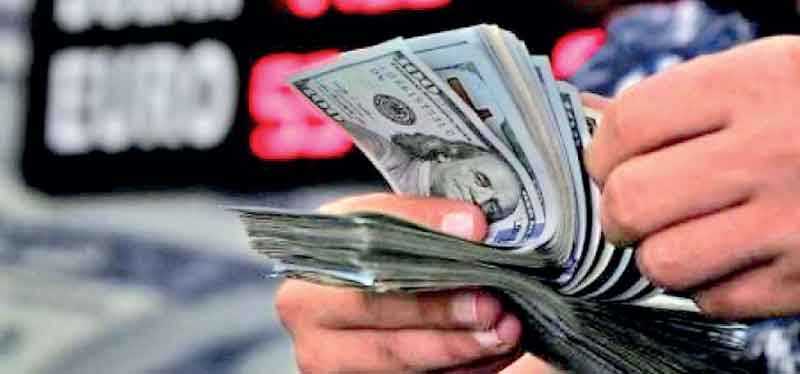Friday Feb 20, 2026
Friday Feb 20, 2026
Thursday, 31 December 2020 00:00 - - {{hitsCtrl.values.hits}}

LONDON (Reuters): The dollar slid to its lowest in more than two years yesterday and riskier currencies gained, as investors looked past rising COVID-19 infections and the latest delay in US fiscal stimulus talks to bet on an economic recovery in 2021.
Lockdown measures in England will be extended, and US President-elect Joe Biden warned that it could take years for most Americans to be vaccinated against COVID-19 at current rates.
US Senate Majority Leader Mitch McConnell on Tuesday blocked a vote on increasing COVID-19 relief payments to $ 2,000, adding another delay to fractious negotiations over fiscal stimulus.
But market sentiment was upbeat as investors remained optimistic that a stimulus deal will be eventually reached and that COVID-19 vaccines will facilitate a global economic recovery, lessening demand for the safe-haven dollar.
The latest setback “doesn’t really matter too much for investors, as they have been over the moon on the back of news that there is still plenty of fiscal support for the US economy”, Naeem Aslam, chief market analyst at Avatrade, said in a note.
Analysts expect the dollar to weaken further in 2021 as US President-elect Biden is expected to push for even more measures to support the US economy.
The “risk-on” moves in currency markets saw major currencies reach record levels in the Asian session yesterday, ease off as European markets opened, then hit new records as the European session continued.
At 1159 GMT, the dollar was down around 0.3% versus a basket of currencies at 89.737, having dropped as low as 89.681 shortly before 1100 GMT. The euro was up at $ 1.22715.
The Australian dollar – seen as a liquid proxy for global risk appetite – was up 0.8% on the day at 0.7664 at 1202 GMT. The New Zealand dollar also hit two-year highs.
The dollar lost out to the Japanese yen, with dollar-yen down 0.4% at 103.13.
In Europe, sentiment was buoyed by Britain becoming the first country in the world to approve the COVID-19 vaccine developed by AstraZeneca and Oxford University.
The British pound was up against the dollar at $ 1.3607, but little changed against the euro, as traders returning from the Christmas break digested the Brexit deal struck on 24 December.
Although the agreement avoids a chaotic no-deal exit, it does not cover services, which make up 80% of the British economy.
Commonwealth Bank of Australia wrote in a note to clients that the lack of an equivalence framework for financial services in the deal and growing support for Scottish independence are new headwinds for the pound.
Euro zone Government bond yields edged up by around one to two basis points, with Germany’s benchmark 10-year yield at -0.562% at 1206 GMT.
There were some signs of increasing inflation expectations. Breakeven rates on 10-year TIPS, which measure expected annual inflation for the next decade, slipped to 1.962%.
“The rapid growth in U.S. money supply and rising commodity prices are stirring up fears about a return of inflation,” wrote Schroders analysts in a note.
“These concerns are reflected in inflation-linked securities, with the 10-year breakeven inflation rate in the U.S. having risen from 0.5% in March to just under 2% today,” they said.
The euro zone’s five-year, five-year inflation forward reached its highest since February earlier in December.
Elsewhere, Bitcoin reached a record high of $ 28,599.99, taking the yearly gain for the world’s most popular cryptocurrency past 295%.